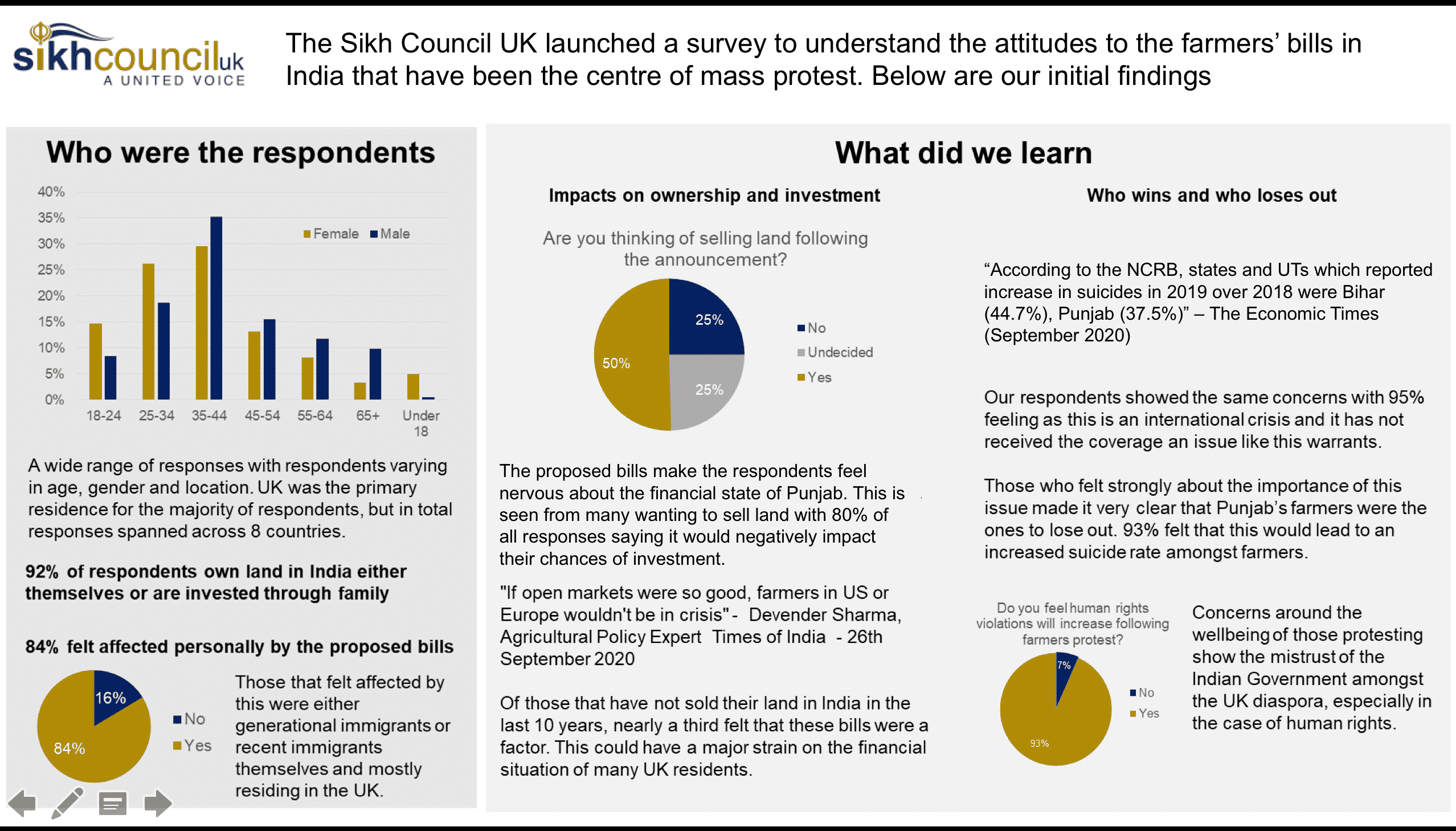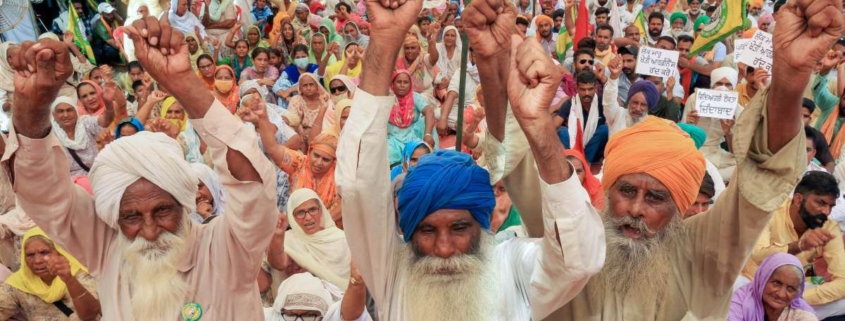Read Full Statement Here (PDF)
Yesterday, Sikh Council UK presented initial findings from a survey exploring attitudes towards the agrarian crisis in India during a virtual lobby hosted by the APPG for British Sikhs. The lobby was chaired by the vice-chair of the APPG for British Sikhs, Tanmanjeet Singh Dhesi MP and was organised by Sikh Federation UK and The Sikh Network.
Speakers included several UK Politicians and Sikhs from across the globe including Europe, North America and several parts of the UK. The focus remained the widespread concerns of Sikhs against ‘anti-farmer’ laws passed in India which have seen mass protests by farmers across India, especially in the predominantly Sikh state of Punjab and Haryana.
It is clear, the recent eruption of protests in Punjab and Haryana is not an economic issue alone. Mandhir Singh and Ajaypal Singh, both activists at the forefront of the protests in Punjab stated that the issue is at its core a political one and is symptomatic of the Government’s treatment of Punjab for decades. Both speakers expressed their view that the sentiment on the ground in Punjab is that the solution to this crisis lies in Punjab’s autonomy.
Gurpreet Singh Anand, Secretary-General of SCUK, said: “The new laws can only be viewed as the latest move in a long-term series of laws negatively impacting the agriculture-dependent state of Punjab.”
The data from the survey was reviewed by Manivjot Singh Dhillon, a Lead Data analyst by profession and SCUK UK Executive Committee Member. A summary analysis from our survey is as follows:
- The survey was launched on 12th October 2020 and has had most respondents from the UK.
- The initial data suggests that nearly all Sikhs (92%) in the UK have ties to agricultural land in India and the vast majority (84%) are personally concerned about the impact of the bills.
- Half of the respondents were considering selling any agricultural land they owned. This includes nearly a third who have not sold any land in the past ten years. For Sikhs, land-ownership holds cultural significance interlinked with our faith and history. For many Sikhs, living as generational immigrants, agricultural land is the last tie to their homeland. Difficult decisions like selling ancestral land will have adverse mental health and emotional impact.
- One of the starkest statistics is that 93% of respondents felt that human rights violations would increase following the mass protests by Punjabi farmers.
Only a month ago, Human Rights Organisation: ‘Amnesty International’ halted its operations in India following ongoing tension with the Government due to Human Rights concerns. The situation in Punjab is precarious, and at any moment, the authorities can increase the intensity of violence to suppress dissent. This has been the pattern of behaviour every time there are political agitations in Punjab.
It was agreed that there would be a letter from the APPG for British Sikhs to write to the Foreign Office to raise this issue with their counterpart within the Indian Government and for MPs to write to the High Commission of India (London). We urge all concerned to continue writing to their local MPs, urging them to raise the issue further by writing to the Foreign Office and High Commission of India (London).





